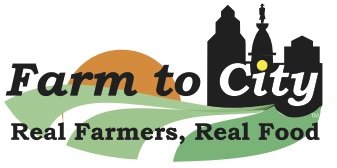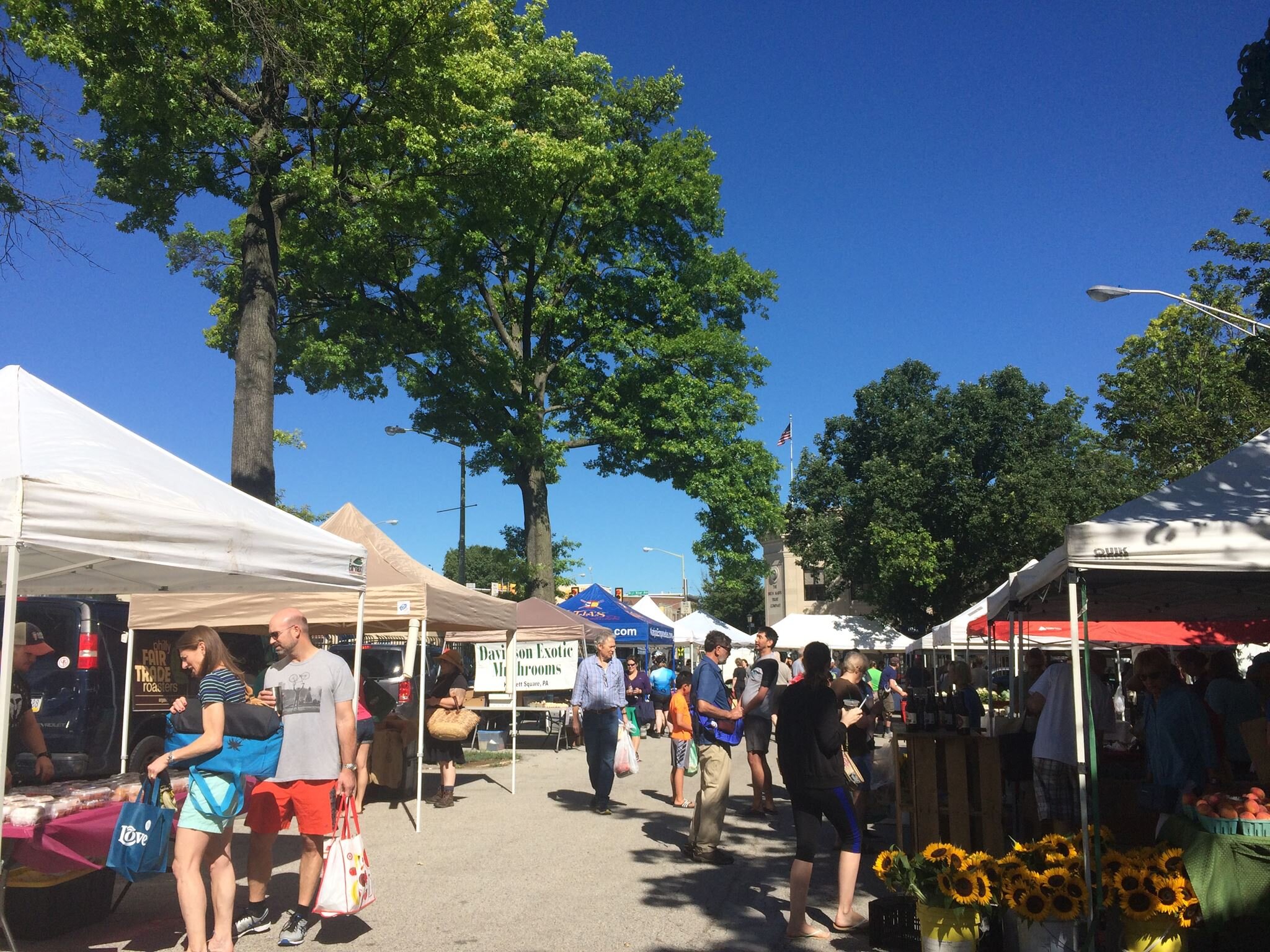3 Reasons to Celebrate Farmers’ Markets
You may not realize it, but every year the first full week of August is designated as National Farmers’ Market Week!
This week-long festivity is always a good time to reflect on the impact farmers’ markets have on us, and to the producers and the shoppers who come every week, and to our entire community and environment. Here at Farm to City, we truly believe that farmers’ markets are an essential element for any city or town, a tradition as old as civilization itself, and that everybody involved in them, especially you, are an integral part of their success.
So please join us in following the advice of U.S Secretary of Agriculture Tom ViIsack when he writes in this year’s official National Farmers’ Market Week proclamation: “I call upon the American people to celebrate farmers’ markets with appropriate observances and activities.”
Below we present three reasons why farmers’ markets are worth celebrating.
1. Farmers Markets Stimulate Local Economies
We say it and hear it so much that sometimes it loses its meaning, but it is just as important as the first time you’ve seen the slogan: Buy Local.
At Farm to City, we define local as a radius of 150 miles from Philadelphia. That definition means we get to work with farmers all the way west in Adams County and eastwards across the Delaware River into the Garden State.
Apple Tree Goat Dairy is probably the producer who travels the most miles, 144 miles one way from Richfield, just north of Harrisburg, to the Ambler market. We also work with farmers and food artisans who live within the neighborhoods of their market. Cellar Door Mushrooms at the Dickinson Square market live so close to the park that they walk their stuff over to the market!
And while farmers and producers rely on you – their customers – to help grow their businesses, they often return the favor. Most small businesses also “buy local.” That means sourcing supplies from other local businesses, hiring from their own communities or from within the neighborhoods of the markets themselves.
And the idea of supporting local businesses doesn’t just end when you leave the market area. Whenever there is a farmers’ market in a community, it is a proven way to spur spending at other nearby businesses. A recent study found that 70% of farmers’ market customers also supported other local shops and stores as they walk or drive to and from the market.
2. Farmers’ Markets Support Healthy Communities
It doesn’t take a rocket scientist to realize that having a farmers’ market in your neighborhood is bound to increase that neighborhood’s consumption of fruits and vegetables and improve the overall health of the community.
In fact, the American Fitness Index includes the number of farmers’ markets per capita as a factor contributing to healthier communities, using it as an indicator for community members’ access to fresh fruits and vegetables.
But the health benefits of a farmers’ market extend way beyond the market itself.
According to studies performed at market, a majority of shoppers felt their farmers’ market increased their connection to their community, 53% believed the market improved perceptions of their neighborhood, and a staggering 99% believed the market improved the health of their community.
“Unlike other food retail outlets,” writes the Farmers Market Coalition, “farmers markets foster a sense of community among their customers. Not only do patrons shop for farm fresh food, but they also engage in conversation, meet neighbors for lunch, and enjoy the festive atmosphere with family and friends. Research indicates people thrive and are naturally happier when socially connected.”
3. Farmers’ Markets Preserve Rural Livelihoods and Farmland
Here’s a historical fact that we can be very proud of: Pennsylvania was the first state in the nation to have a Farmland Preservation Program.
Another fact to celebrate, thanks to this program: “Pennsylvania leads the nation in the number of farms and acres permanently preserved for agricultural production.”
This kind of preservation program enables state and local governments to purchase conservation easements from farmers, and then permanently protect that land from future development.
Those purchases are frequently partnered with smaller farms – the same farms that are represented at producer-only farmers’ markets.
Unfortunately, once we started digging deep into this preservation program, we came across one sobering statistic: there are 5 times as many U.S. farmers over the age of 65 compared to those under 35. That is alarming because our farmers’ markets rely on that agricultural tradition.
There is good news though: producer-only farmers’ markets provide a low-barrier entry point for new farmers. By selling directly to consumers, farmers have a higher return on their investment, giving them a better chance for their family businesses to survive, better than if they sold their products via wholesale channels.
Farmers’ Markets and You: A Mutually Beneficial Relationship
Farmers’ markets could not exist without the mutually beneficial relationship of the farmers and producers and you, the customer.
Farmers engage in sustainable practices and producers buy locally sourced ingredients to help sustain the economy. They produce healthy food and products to help sustain the local community. The local community – you – provides the money necessary to sustain the farmers and producers.
It’s a win-win relationship worthy of a big celebration!
Special thanks to the National Farmers Market Coalition whose website provided many of the studies and statistics used in this post.






